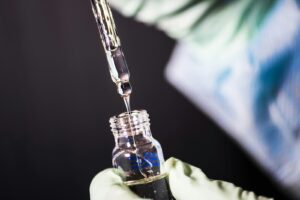Innovative Microorganisms for Environmental Restoration
Transforming Environmental Cleanup with Synthetic Biology
The synthetic biology in environmental applications is revolutionizing the way we address environmental challenges. One of the most promising areas of this field involves the development of microorganisms engineered to degrade pollutants and restore contaminated ecosystems. This innovative approach leverages the capabilities of synthetic biology to create microorganisms with enhanced abilities to break down hazardous substances, offering a more efficient and sustainable solution for environmental cleanup.
These engineered microorganisms can be tailored to target specific pollutants, such as heavy metals, hydrocarbons, and agricultural chemicals. By modifying the genetic makeup of these microorganisms, scientists can enhance their metabolic pathways to accelerate the degradation process. For instance, bacteria and fungi have been genetically modified to degrade oil spills more rapidly, a critical application in mitigating environmental damage from industrial accidents. This method not only reduces the environmental impact of pollutants but also minimizes the need for harmful chemical treatments, presenting a greener alternative for environmental management.
The potential of synthetic biology extends to the restoration of contaminated ecosystems as well. In areas where traditional cleanup methods have proven inadequate, engineered microorganisms can be introduced to restore soil and water quality. By breaking down pollutants into less harmful substances, these microorganisms help rejuvenate ecosystems, promoting the recovery of native flora and fauna. This application aligns with the increasing global emphasis on sustainable environmental practices, reflecting a commitment to preserving and enhancing natural habitats.
Advancements and Applications in Synthetic Biology
As synthetic biology continues to advance, new developments are expanding the scope and effectiveness of environmental applications. One significant innovation is the use of synthetic biology to create microorganisms with improved resilience and functionality in harsh environmental conditions. For example, microorganisms can be engineered to thrive in extreme temperatures, pH levels, and salinities, making them suitable for a wide range of environmental contexts. This adaptability enhances their utility in diverse ecological settings, from polluted industrial sites to marine environments.
Additionally, the integration of synthetic biology with other cutting-edge technologies, such as artificial intelligence (AI) and blockchain, is poised to further enhance environmental solutions. AI can optimize the design and performance of engineered microorganisms by analyzing vast amounts of data and predicting outcomes. Blockchain technology can ensure transparency and traceability in the deployment and monitoring of these microorganisms, providing a reliable record of environmental interventions. These synergies highlight the potential for synthetic biology to drive innovation and create more effective solutions for environmental challenges.
In regions like Saudi Arabia and the UAE, where there is a strong focus on technological advancement and sustainability, the application of synthetic biology offers exciting opportunities. These countries are investing in research and development to harness the power of synthetic biology for environmental conservation, aligning with their broader goals of environmental stewardship and sustainable development.
Driving Business Innovation and Sustainability
The rise of synthetic biology in environmental applications presents significant strategic opportunities for businesses and organizations focused on sustainability. Companies involved in biotechnology and environmental management can leverage synthetic biology to develop innovative solutions that address pressing environmental issues. By investing in research and development, businesses can position themselves as leaders in the field, capitalizing on emerging trends and technologies to create value and drive growth.
For businesses in Saudi Arabia and the UAE, the adoption of synthetic biology aligns with national priorities of advancing technology and promoting sustainable practices. Companies that integrate synthetic biology into their environmental strategies can enhance their reputation, attract investment, and contribute to the achievement of sustainability goals. Additionally, collaboration with research institutions and governmental agencies can provide valuable resources and support for the successful implementation of synthetic biology projects.
Moreover, the application of synthetic biology in environmental management can lead to cost savings and operational efficiencies. By reducing the need for conventional cleanup methods and minimizing environmental impact, businesses can lower their environmental compliance costs and improve their overall sustainability performance. This approach not only benefits the environment but also enhances the long-term viability and resilience of business operations.
#SyntheticBiology, #EnvironmentalApplications, #PollutantDegradation, #EcosystemRestoration, #Biotechnology, #Sustainability, #InnovativeSolutions, #GlobalStewardship













